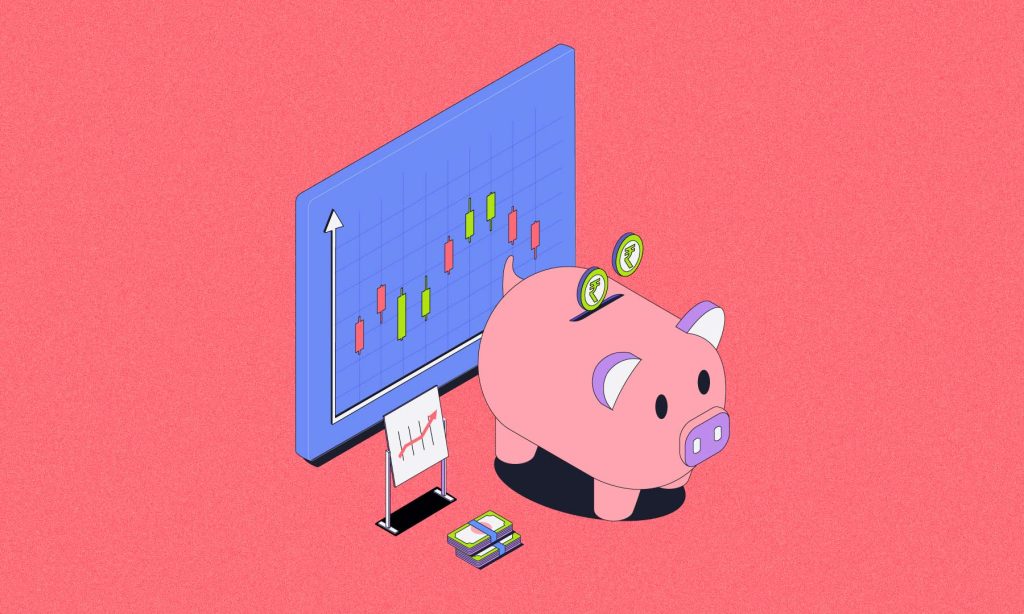Market volatility refers to frequent fluctuations in the prices of instruments, such as stocks, which affect the value of investments. Fixed deposits (FDs) are a popular investment choice for risk-averse people since they provide a fixed rate of return unaffected by market volatility. However, investors must consider how taxes and inflation affect their FD returns.
Investors should diversify their portfolios, keep an eye on market trends, and choose reputed financial institutions to be secure during uncertain times. Long-term investment planning can help investors maintain stability amid market volatility and survive short-term fluctuations.
Understanding market volatility
A market is said to be volatile if asset prices or values fluctuate frequently and abruptly, up or down. Economic policies, political events, global crises, or rumors can lead to market volatility. Investors must understand market volatility to judge when to buy, sell, or keep their investments.
If they understand market volatility, intelligent investors can take advantage of a volatile market to reap higher long-term returns. You can calculate market volatility by calculating the standard deviation of price fluctuations over time. You may determine how much something deviates from the average value using the statistical idea of a standard deviation.
Strategies for investing in FDs during market fluctuations
Investors may experience anxiety and uncertainty due to market fluctuations, but fixed deposits provide an excellent option to protect your money. The low-risk investments offer steady returns, making them a desirable choice in a volatile market. It’s essential to have a viable investment plan in place to maximize profits and reduce risks. We’ll discuss some key strategies for investing in FDs during market fluctuations.
Monitor market fluctuations and trends
Fixed-deposit investments offer a great opportunity to create steady returns, especially during market volatility. Monitoring market fluctuations and trends is necessary to optimize the possible profits from FDs. Monetary policies impact interest rates and trigger market volatility. Hence, investors must keep track of market fluctuations to finetune their FD investment strategy.
Investors should pay attention to data like inflation rates, central bank policies, and economic indicators to make informed choices on FD investments. Investors can lessen the impact of market fluctuations and produce predictable returns over the long term by distributing their assets among varied FDs. In general, staying up-to-date on market trends and changes is essential to making wise choices regarding investing in FDs.
Maintain a diversified portfolio
Maintaining a diversified portfolio is a well-known strategy for reducing investment risks, such as fixed deposits during market fluctuations. The basic concept is to diversify one’s FD holdings over various businesses and sectors so that even if market swings impact one investment, the others may hold steady or perform well.
FD products come with varying risk levels, tenures, and interest rates. A careful selection would protect investments from market-related swings. Investing in a diverse portfolio of FDs would ensure a stable income stream.
Consult a qualified financial expert
Investing in fixed deposits is a smart move to protect your money from market volatility during market swings. Since not all investors are savvy about financial products, consulting a qualified financial expert is advisable.
The expert would help you choose the FD scheme suited to your risk tolerance and investing objectives. Also, they may offer insights about interest rate changes and recommend the ideal investment tenure to optimize your return. Furthermore, consulting a financial expert can help you diversify your portfolio by investing in different FDs across various financial institutions.
Take an active approach to risk management
For investors considering investing in fixed deposits, it is essential to take an active approach to risk management. Investors must take early steps to manage their risk exposure since market swings can substantially influence the performance of FDs.
FDs are risk-free products, yet potential defaults by the institutions offering the scheme pose a risk. Developing market awareness and understanding volatile investments is another strategy. To actively manage risks, you must carefully monitor market circumstances and modify your investing plan to maximize returns and reduce risk.
Beware of premature withdrawal
Fixed deposit investing is a well-liked strategy for generating consistent investment returns. But it is crucial to exercise caution if you consider early FD withdrawal in a fluctuating market. It might be enticing to break your FDs to partake in exciting investment opportunities market volatility offers.
However, this tactic risks losing interest and a penalty for early withdrawal. It’s essential to remember that FDs are a low-risk investment choice intended for long-term investing.
Conclusion
Market volatility can impact investors, but there are ways to keep safe when things change thick and fast. You may reduce your exposure to market swings and long-term asset preservation by understanding the idea of FDs and diversifying your portfolio. During market turbulence, you should stay calm and avoid making rash decisions. Remember that you can successfully handle the market’s ups and downs with some foresight and strategy.
FAQs
How do you deal with market fluctuations?
You may reduce the impact of market volatility by diversifying your holdings, developing a long-term investment plan, avoiding irrational actions, and keeping up with current market trends.
Is it preferable to have several FDs?
Investing in fixed deposits can offer diversification and reduce risk over various tenures and interest rates. But they would fetch lower overall returns than investing in alternative assets with better yields. In the end, the selection depends on individual financial objectives and circumstances.
Are FDs exposed to market risk?
Fixed deposits are not directly exposed to market risks like stocks but are susceptible to inflation and interest rate risks that can affect their returns. To reduce these risks, investors should think about diversifying their holdings.








